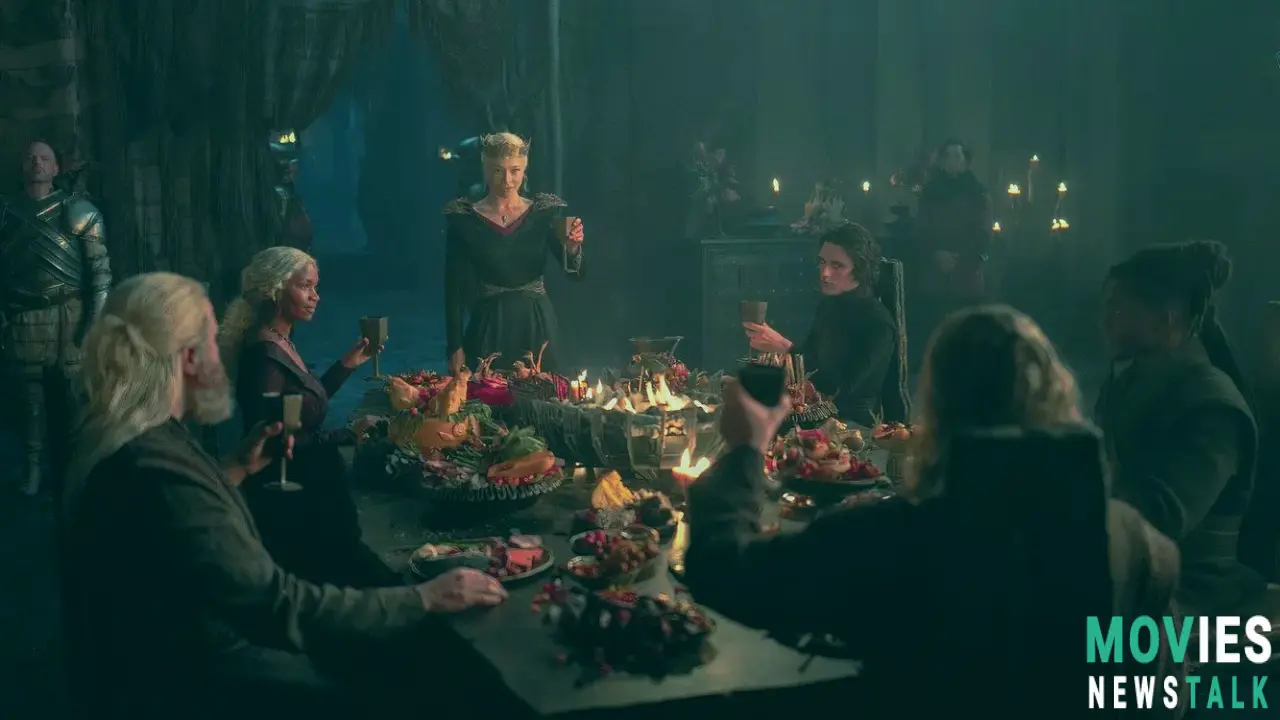Season 2 finale of House of the Dragon: A Complicated Mix of Success and Disappointment
While effectively bringing numerous big storylines to a close, House of the Dragon's season 2 finale also introduces a number of intriguing new themes that will set up an exciting season 3 of the show. While there are some great character moments, political scheming, and intriguing future teases in the finale, there are also other things that feel incredibly predictable and remind us of franchise-servicing tactics frequently used in the MCU or Star Wars.
In spite of its intricate storyline and dense narrative, the episode creates some very remarkable situations. For example, Rhaenyra's reunion with Daemon and Alicent elicits an emotional intensity not often seen on the show. Emma D'Arcy, Matt Smith, and Olivia Cooke's performances brilliantly convey the complex individuals' simmering bitterness, waning love, and remaining hope.
Superb Character Moments: The Key to the Success of the Show
Like its forerunner Game of Thrones, House of the Dragon's strength is in its dialogue-driven interactions, which effectively bring complicated characters to life. There are so many exciting events in the climax, such King Aegon II Targaryen's alliance with Larys Strong. This alliance is akin to the political scheming that occurs in Game of Thrones, and it successfully exposes the darker side of these individuals while providing a window into the motivations behind their behavior.
Ser Criston Cole exhibits an unexpectedly vulnerable—even earnest—side to the character in his moving speech to Gwayne Hightower. The contentious exchange between Alyn of Hull and Corlys Velaryon provides a compelling viewpoint that is uncommon in the series, illuminating the hard reality of growing up a bastard in Westeros.
The Invading Connection to Game of Thrones: The Unwanted Franchise Trap
There are conflicting emotions surrounding Daemon's last vision, which shows glimpses of Daenerys Targaryen, a White Walker, and the Three-Eyed Raven. It feels forced and only establishes a direct connection to Game of Thrones, even if it fits into Daemon's storyline and eventually forces him to kneel before Rhaenyra.
While the timeline of House of the Dragon aims to avoid this kind of overt linkage, the introduction of concrete elements—the White Walker and Daenerys Targaryen, two iconic figures from Game of Thrones—creates an unneeded connection that takes away from the show's distinctive story. HBO seems to be relying more on well-known franchises for popularity than on the merits of its current narrative.
A Setup for Season 3: Promise or Lost Chance?
The season 2 finale spends a lot of time setting up the stage for season 3, intensifying the tensions that are already there between Rhaenyra and Alicent. Though the possibility of an impending battle is exciting, the pacing and lack of action towards the end—particularly the absence of the much-anticipated Battle of the Gullet—may leave viewers feeling unsatisfied. Unquestionably, season 3 promises to be dramatic, but fans of season 2 may feel cheated out of a satisfying conclusion.
The promise of the tale for season 3 remains alluring, even though a hurried season duration may have added to this unfulfilled sensation. Aemond's rising influence, Alicent's growing yearning for independence, and King's Landing's complex political changes all contributed to an explosive third season.
House of the Dragon Is More Than Just a Spin-Off and Can Stand Alone
Because of Game of Thrones, many people are familiar with the land of Westeros and its complex political conflicts. The secret to House of the Dragon's success is not just copying the Game of Thrones brand, but also expanding upon it. Because of its compelling story, exciting power dynamics, and well-developed characters, the series should be evaluated on its own merits.
Season Two exemplifies this possibility. House of the Dragon's strength lies in its outstanding cast, fascinating character development, and exciting excursions within the Targaryen lineage, even though its ending features some frustrating moments of overreaching and obvious set-up for season 3. House of the Dragon may soar even higher if it placed a little more trust in the power of its narrative and relied less on well-known properties.

